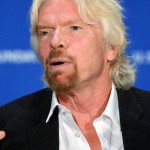Wie Virgin Media CEO Richard Branson die Candidate Experience als Profitcenter entdeckte

Hand auf’s Herz: Candidate Experience ist für Personaler und Bewerber eher ein Ärgernis, das im Bewerbungsprozess demotivierend wirkt und sich ohne Gegensteuern durch das HR-Management negativ auf Employer Branding und die Personalbeschaffung auswirkt. Und dabei kann viel Geld verloren gehen. Doch leider haben die Unternehmenscontroller in ihrer Gewinn- und Verlustrechnung kein Konto dafür eingerichtet, und CEOs können den wirklichen Verlust einer schlechten Candidate Experience nur per Bauchgefühl schätzen – wenn überhaupt Interesse daran besteht.
Richard Branson, der charismatische CEO des US-Unternehmens Virgin Media, hat nun das Thema Candidate Experience auf den Kopf gestellt und transformiert dies zu einem Profitcenter. Wie das geht, berichtet Bryan Adams, Founder und CEO Ph.creative in dem lesenswerten Bericht bei Inc.com.
Brands with world-class customer service could be victims of their own success. Failing to provide the same experience for candidates, and the disparity between the two, is losing some brands millions of dollars each year. Virgin Media was one of them, however they plan to make it a revenue stream…
A typical year of recruiting at Virgin Media means receiving around 150,000 applications, which translates into hiring around 3,500 people.
In 2015, unfortunately that also equated to upsetting over 7,500 customer applicants enough to motivate them to cancel their contracts and sign up with competitors instead.
These numbers were internally and externally validated and estimated to be worth over $6 million of lost revenue each year.
Virgin Media is an amazing brand and its reaction to discovering this insight was brave and bold; and not unlike what you might expect from any ‚Branson business‚.
When we (my digital marketing agency, Ph.) met their team after helping them to uncover the truth about their loss-making recruitment process, the challenge was simple: ‚Make us famous for candidate experience.‘ This challenge quickly led to posing this new question: ‚What if your candidate experience was so positive that it created new customer acquisition opportunities from the people we engaged with?‘
Before thinking about a new $7 million revenue stream from the 89 percent of people applying for a job at Virgin Media that were not currently customers, we needed to establish a commitment to 100 percent of job applicants and neutralize the current loss-making situation.
The first new commitment was to make every single job applicant to Virgin Media more employable having experienced its recruitment process – whether they work for Virgin Media or not.
The second, thought up by Graeme Johnson (Virgin Media Head of Resourcing) was to be the good guys of recruitment and become world-famous for a positive candidate experience.
Here are six steps that outline how we’re doing it with them:
1. Research, understand and love every persona of your audience
Empathize with and love your audience personas so you can design an authentic experience to suit them and build real brand loyalty because you care. With this insight, you can later design rewards and incentives that translate into new revenue generating opportunities.
2. Quantify and measure your current situation
Understand the current cost of your candidate experience so you can benchmark and set a goal you can measure.
3. Map your current candidate experience
Map each step in the experience in two ways.
First, by considering:
- How do your candidates feel?
- What are your candidates thinking?
- How easy is it to progress?
- What is the current lasting memory?
Second, by considering the environment:
- What are the current location and parameters of the event?
- Who in your team is present and accountable?
- What technology is being used?
Lesen Sie hier den kompletten Artikel: Inc.com
.




